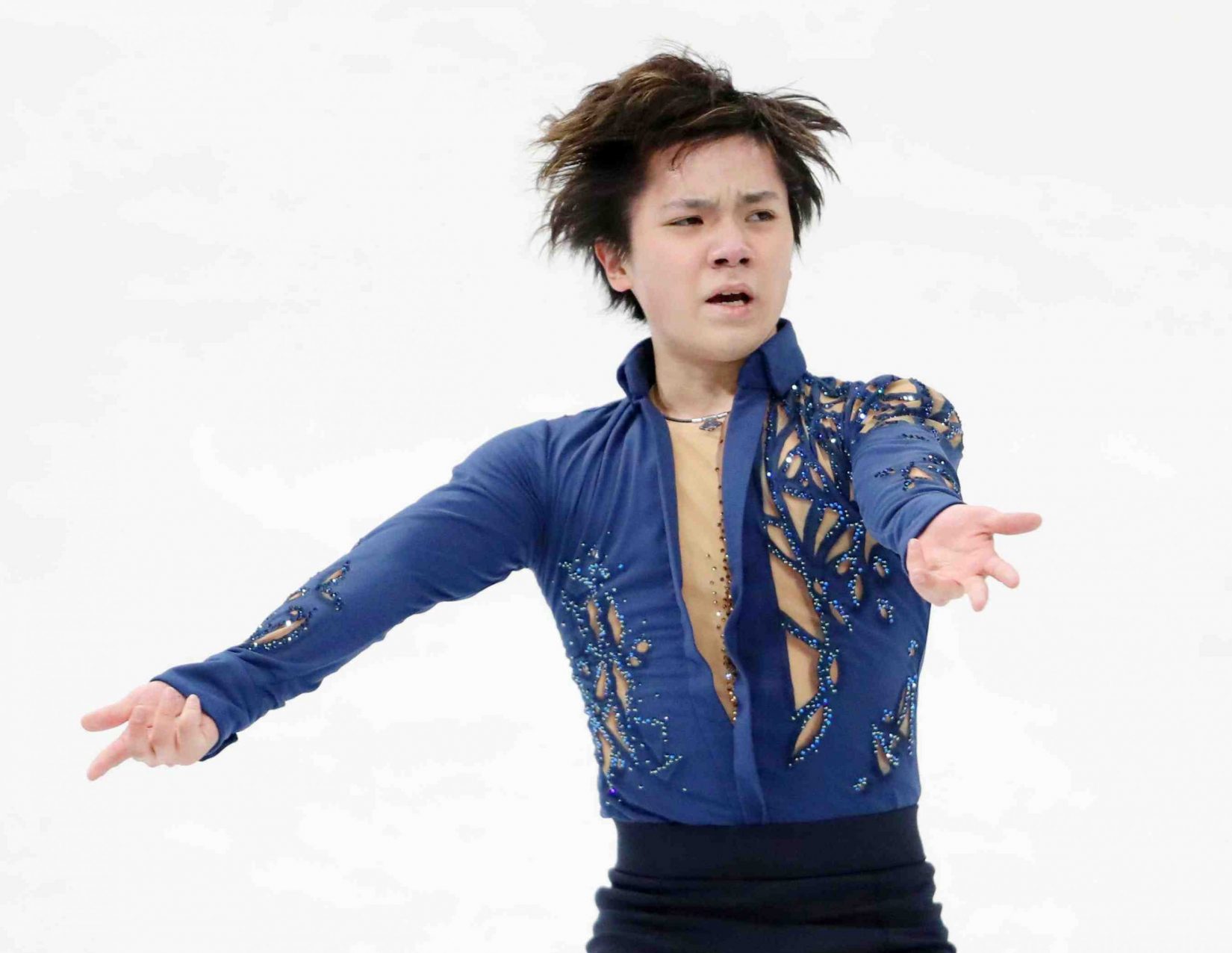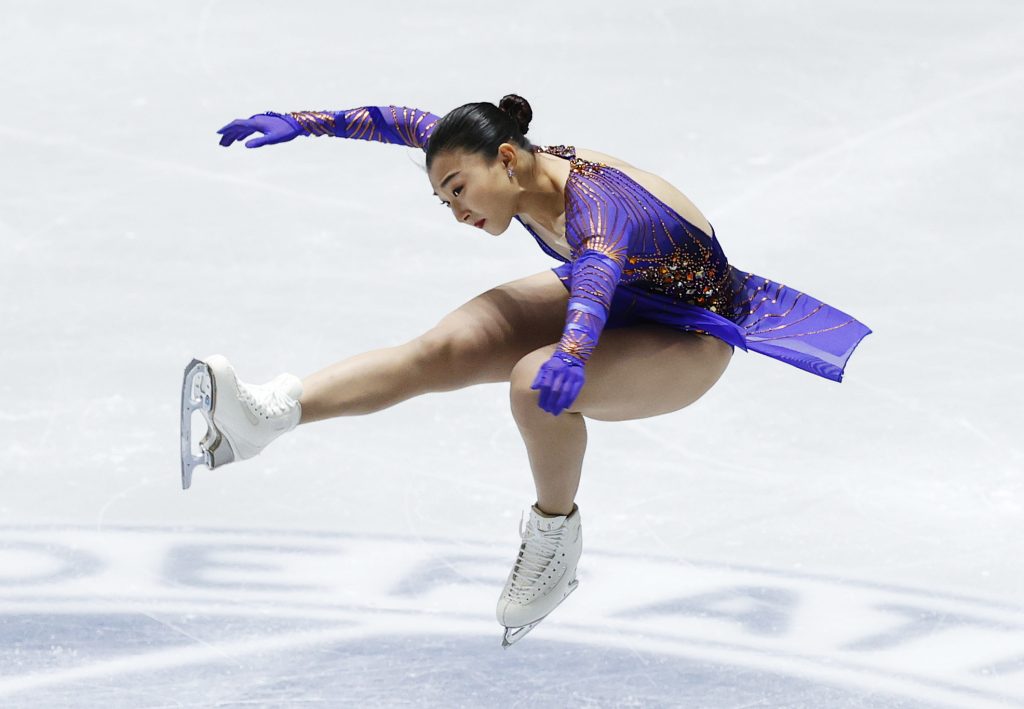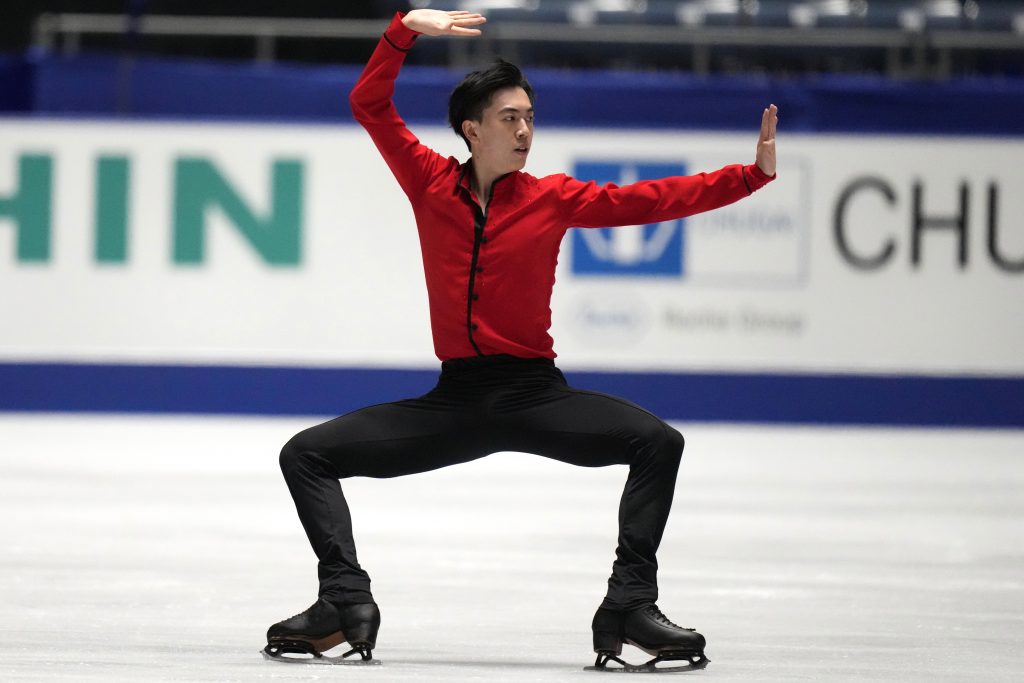
The sudden December 2 canceling of the Grand Prix Final, scheduled to be held in Osaka this month, was a most unfortunate development for skaters and fans, and one that could have long-term implications for sports in Japan.
While on the surface it may appear as just one event in a season of many, the fact is that the GP Final is a prestigious competition featuring the top six skaters and teams in each discipline during the GP season. It is also held concurrently with the Junior Grand Prix Final.
The rash decision to cancel the GP Final came about in the wake of the revelation of a new variant of COVID-19 called Omicron. This caused Prime Minister Fumio Kishida to follow the lead of several other countries and suddenly close Japan’s borders to foreign non-residents and extend the quarantine time for returning citizens and foreign residents to 14 days on Tuesday, November 30.
All of this was done in a matter of hours, with no data on the potential impact of Omicron.
Michael Ryan, head of the WHO’s Health Emergencies Program, knocked the move at a press conference on Wednesday, December 1. He said of the sudden ban on foreigners, “Epidemiologically, I find it hard to understand the principle here. Does the virus read your passport? Does the virus know your nationality or where you are legally resident?” Kyodo News reported.
“Our concern here is that we apply public health principles, not political principles, to selecting measures that are used to control the spread of diseases,” Ryan remarked.
Some may say there should be an abundance of caution in the wake of the chaos caused by the pandemic, but there is also a cost to overreacting.
The Japan Skating Federation was put in an impossible position by the government’s decision. But it could be the group that bears the brunt of the fallout.
The reality is that had the GP Final been scheduled for almost any country other than Japan, it would have been held as scheduled. Russia, which had the most skaters qualified for the event, would certainly have gone forward with it.
The Croatian Skating Federation confirmed in an email to Ice Time on Friday, December 3 that next week’s Challenger Series competition, the Golden Spin in Zagreb, is taking place as planned.
A lot has changed over the course of the past 20 months with regard to COVID-19, including vaccines, prevention measures, and educational knowledge about it. Many countries have returned to a state of normalcy and are now holding sports events with large numbers of spectators attending.
It is bad enough that the best skaters in the world had the event canceled at the last minute, after building up to it during the GP season. But to do it just two months before the Opening Ceremony for the Beijing Olympics makes it exponentially damaging.

Kaori Sakamoto competes in the free skate at the NHK Trophy on November 13. (Issei Kato/REUTERS)
Marquee Event Canceled Just Before the Olympics
The GP Final, scheduled to be held December 9-12, was set to be the last major international competition open to all countries before the Olympics. Instead, it was canceled for the second year in a row. Now most of the top skaters will have just one more competition ー their national championships ー to get ready for Beijing.
People may think that canceling sports events is no big deal, but that is not the case. It is not just the athletes and fans that lose out. So do the organizers and sponsors, often at significant financial cost.
Ice Time spoke with an international sports journalist who has covered more than 10 Summer and Winter Olympics about the potential impact canceling the GP Final and other events in Japan may have on the country going forward.
The journalist pointed to the recent Tokyo Olympics, which saw some 80,000 foreigners associated with the Games allowed into Japan, as an example of the mixed message relayed by the move.
The GP Final would have brought only approximately 100 foreigners into the country.
“If Japan can host the Olympics and Paralympics on such a huge scale, then surely they could have hosted the GP Final,” he stated. “They have the experience of the Olympics and could have insisted on every person coming to Osaka being fully vaccinated and with a negative test 24 or 48 hours before departure and again on arrival. Plus daily testing with protocol in place in case of any positive test.”
The journalist then got to the key point in my thesis on the subject.
“The danger is that Japan and China and even Korea could be left behind in terms of hosting major international events if they keep canceling or postponing,” he commented. “This would be bad for the athletes, spectators and country as these give massive exposure.”

International stars, like American Vincent Zhou are a big part of the appeal of the Grand Prix Final. (Shuji Kajiyama/AP)
Risks for Japan’s Future
International organizations are going to be reluctant to commit to bringing big events to Japan if they think the plug may be pulled at the last minute. The Olympics were too big to fail, so to speak. But that is not the case for other competitions.
I can see Japan losing out on major volleyball, tennis, athletics and other sporting events in the future over concerns about reliability. These global organizations don’t want to be left holding the bag because a government got nervous at the last minute, regardless of the reason.
Former Mizuno Corporation chairman Masato Mizuno, who was the CEO for the bid committee for the 2020 Olympics, referred to Japan as “a safe pair of hands” in the runup to the vote on awarding Tokyo the Games back in 2013.
But will world sports organizations still feel this is the case?
The journalist cited a major upcoming event in Japan as a possible concern.
“Let’s hope the FINA world championships in Fukuoka in May 2022 will not be affected,” he stated, referring to the global championships for swimming, diving and other aquatic sports. “There is plenty of time to put countermeasures in place.”
The International Skating Union, in its official announcement about the GP Final, called it a “postponement” and said it would try to stage the competition at the end of the season if possible.
But that seems a remote possibility, as the skaters are trying to peak for the Olympics in February and world championships in March. You have to wonder how many of the top six skaters and teams would even be willing to participate in the GP Final in April.
The other thing is, would the ISU be willing to risk rescheduling the GP Final for Osaka again in April?
Not likely after what just happened.
RELATED:
- [ICE TIME] Yuma Kagiyama’s Rocket Rise Continues with No. 1 Ranking in World Standings
- [ICE TIME] Shoma Uno Back in Spotlight with Triumph at NHK Trophy
Author: Jack Gallagher
The author is a veteran sports journalist and one of the world’s foremost figure skating experts. Find articles and podcasts by Jack on his author page, here, and find him on Twitter @sportsjapan.





















You must be logged in to post a comment Login